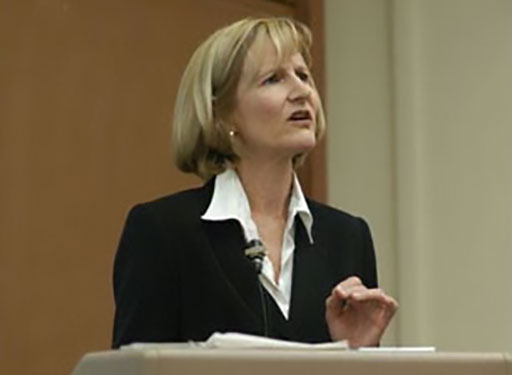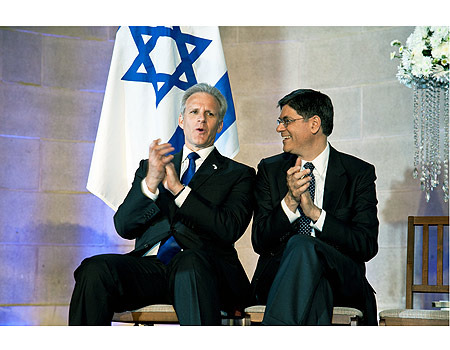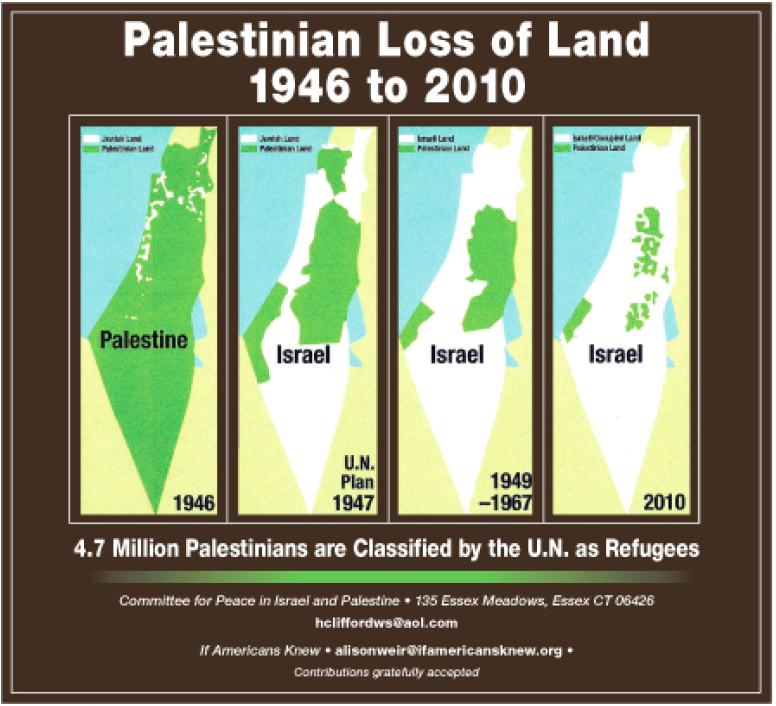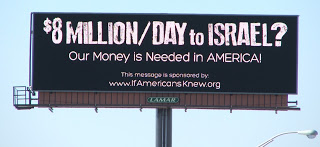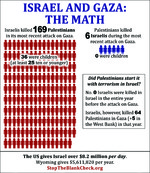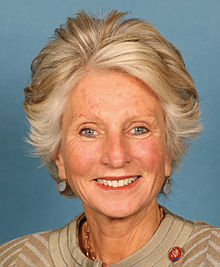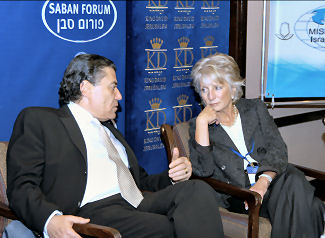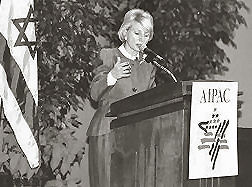However, I feel I need to briefly take time out to provide information about the Gilad Atzmon controversy, since I feel the attacks on him are enormously unfair, they continue to occasionally interfere with productive efforts, are sometimes used to try to block my presentations (more on this later), and because an important new article on the topic has just come out.
Some activists found this topic impermissible and began to launch attacks on Atzmon, which largely seemed geared at preventing others from reading his work for themselves.
(At least one prominent US activist, not Palestinian, didn’t sign the letter publicly, but privately attempts to block Atzmon’s events in the US.)
It contained a grand total of 23 signatories. All were Palestinian, most of them living in the US.
Some of the individuals who signed these letters later admitted they had never read Atzmon’s book. (In fact, given how busy we all are, I would guess few of them did.)
One person emailed the sponsors of one of my talks in London, falsifying what Atzmon says and I had written, in an attempt to persuade the organizers to cancel the event.
Now there is a new development. An individual named Blake Alcott has written a thorough analysis of Atzmon’s writings and of the attacks against him, published on CounterPunch and Redress. (I will also post it below; to see the footnotes, some of which contain additional valuable information, read it either on Redress or on Alcott’s site). As Redress Editor Nureddin Sabir
writes:
I respect and like people on both sides of this controversy, including a number of people who signed the letters attacking Atzmon.
Even though I disagree with the decision some made to sign these letters, I still feel we are allies in an urgent cause and hope we will continue to work together to bring the change that is so desperately needed. Let us set aside attacks on Atzmon and others, let us not let others exploit this issue to block presentations by those who differ on this issue, and let us turn our full focus, time, and efforts to our life-and-death struggle against the continued oppression of millions of men, women, and children in Palestine and beyond.
Panel at Cooper Union NYC led by Anne-Marie Slaughter, 28 September 2006:
Tony Judt: I just… I’d just like to say one very quick thing about [the difficulty of getting anything critical of Israel into the mainstream media]. When I submitted an article about the Israeli Lobby debate — that Mearsheimer and Walt kicked off — to a very well known American, North American, newspaper [NY Times], I was asked by the editorial directors would I mind telling them whether I’m Jewish or not. They felt it was something they would like to know before they published it.
Martin Indyk: But they published it.
TJ: I told them I was Jewish. (Audience laughs.)
This review of Gilad Atzmon’s book The Wandering Who? A Study of Jewish Identity Politics and the anti-Atzmon essay by Ali Abunimah and some 20 co-signatories called Granting No Quarter: A Call for the Disavowal of the Racism and Antisemitism of Gilad Atzmon is an effort to unite the movement for one secular, democratic state (ODS) in historic Palestine of which both Atzmon and Abunimah are adherents. Edward Said wrote,
The absence of a collective end to which all are committed has crippled Palestinian efforts not just in the official realm, but even among private associations, where personality conflicts, outright fights, and disgraceful backbiting hamper our every step.
In his last years Said put such a “collective end” into words – for coexistence between Jews and Arabs in one state – and now, at the end of a decade that has witnessed outstanding articles, books and conferences articulating this vision, a chasm opens up. If our effort is not to be crippled both sides must bury the hatchet.
Abunimah, Omar Barghouti, Rafeef Ziadah and other signatories, as well as other ODS supporters known to me who have disavowed Atzmon, have made enormous contributions to justice for Palestinians. Their accusations are worth examining, which requires examining The Wandering Who? and some of Atzmon’s blogs and videos with an eye out for the racism, ‘antisemitism’ and Holocaust denial of which Granting accuses him. I haven’t read everything, of course, and there are certainly mistakes in my judgment, so I welcome any feedback and debate.
The call for disavowal accuses Atzmon of 5 trespasses:
(1) He claims to speak for Palestinians.
(2) He denies that Zionism is settler-colonialist.
(3) He believes that to self-identify as a Jew is to be a Zionist.
(4) He denies the Holocaust.
(5) He is an ‘antisemite’, a racist.
Two general observations: First, Granting’s accusations are formulated indirectly, not ‘in so many words’; but a reading of the short document shows that these are what it boils down to. Second, Granting itself does not include any proof or evidence for the accusations; there are no examinations of Atzmon’s texts, even out of context. Neither are there explicit definitions of the terms ‘racist’ and ‘antisemitic’ that would by rights accompany such severe accusations. For such more detailed definitions and arguments I have searched the web in vain, but of course the web is large, and if I have missed something I hope somebody tells me. I’m restricting my analysis almost entirely to Wandering on the assumption that evidence for the accusations would be there, if anywhere.
Strictly speaking there is thus no case, only claims. Atzmon is innocent till proven guilty. It is unfair, difficult and inefficient to put the burden of proof on the accused. Nevertheless, I’ve read the book carefully and ended up writing a defense of it that includes several criticisms, quoting Atzmon at length along the way. Please also see the favourable reviews by Mazin Qumsiyeh and John Mearsheimer, and a less favourable one by Elias Davidson. I ignore denunciations of Atzmon by Alan Dershowitz, Tony Greenstein and Jeffrey Goldberg because they consist of associative thinking and are based on often-unreferenced quotations out of context. Preceding Granting, in late February 2012, was a similar critique of Wandering that actually contains 12 quotations from Atzmon.
The five accusations
(1) Guiding the Palestinian struggle
Granting claims that Atzmon “for many years now… has taken on the self-appointed task of defining for the Palestinian movement the nature of our struggle, and the philosophy underpinning it.” Since I am sure the Granting signatories do not reject all ideas of all outsiders, this leaves it unclear what counts as acceptable opinion and support. It is moreover legitimate for Atzmon and other Israeli citizens to advocate visions of the future of their country – necessarily including Palestinians.
Granting’s concern becomes clearer through the further statementthat “As Palestinians, it is our collective responsibility, whether we are in Palestine or in exile, to assert our guidance of our grassroots liberation struggle.” Atzmon has in fact elsewhere agreed with this:
It is our duty (as human beings) to show our support to the Palestinian people but we are not allowed to tell them what to do. We are not allowed to tell them what is right or wrong, we can only offer ourselves as soldiers…
Ignoring the absurdity of the idea of ‘telling Palestinians what to do’, roles between the oppressed and those in solidarity with them must always be negotiated. In this case however I know that there is almost total agreement between Atzmon and the “principles” of the movement guided by the signatories: Right of Return, equality not apartheid within Israel, liberation of the West Bank and Gaza, and perhaps even a preference for one over two states.
(2) Settler-colonialism
Granting claims that “Zionism, to Atzmon, is not a settler-colonial project…” The text of Wandering does not support this claim. Atzmon in several places explicitly affirms that Zionism is settler-colonial. (pp 9, 88, 101, 165) In apparent contradiction, he does in one place write that it “is not a colonial movement with an interest in Palestine”. (p 19) In my reading this means it is not just a run-of-the-mill colonial movement out for economic or geopolitical gain: there is no mother country unless it is world Jewry, and Zionism’s only colony is Palestine, which was chosen over Argentina and Uganda for cultural and/or religious reasons. Atzmon elsewhere objects to the “misleading” colonialism paradigm because he regards Zionism as a unique racialist project, not motivated by material exploitation for the (non-existent) homeland.
Atzmon is basically asserting that the settler-colonialist paradigm is not sufficient to explain Zionism: Zionist events like the attack on the Mavi Marmara, dropping White Phosphorus on Gaza, slicing up the Holy Land with separation walls, and indeed the original expulsion of “the vast majority of the Palestinian indigenous population just three years after the liberation of Auschwitz… have nothing to do with the colonialist nature of the Jewish state…” (pp 181-182) To be sure, the term “nothing” overstates the case, but his claim is that more than colonialism is involved. I’m inclined to agree when I read for instance Netanyahu’s December 2012 statement that “We live in a Jewish state, and Jerusalem is the capital of Israel. The Western Wall is not occupied territory. We will build in Jerusalem because this is our right.”
(3) Jewish political identity
Granting interprets Atzmon’s complex sociological concept of Jewish-ness to mean that
Zionism…is…part and parcel of defining one’s self as a Jew. Therefore, he claims, one cannot self-describe as a Jew and also do work in solidarity with Palestine, because to identify as a Jew is to be a Zionist.
Now, to say that self-identifying as a Jew entails Zionism is prima facie absurd, and I do not find the claim in Wandering. I agree with Granting that Atzmon is wrong in his blanket criticism of anti-Zionist Jewish groups. I also find Atzmon at places abstruse on this issue of the relation between world Jewry, “Jewish ideology” and Zionism.
But confusion is abated when we realise that his definition of Zionism differs from the standard, broad ‘movement for a Jewish state in Palestine’. Rather: “I suggest that it makes far more sense to regard Zionism as a tribal Jewish preservation project [aiming at] the prevention of assimilation…[] Accordingly, Zionism should be seen as an amalgam of different philosophies specialising in different forms of tribal separatism, disengagement and segregation.” (p 70) Atzmon is thus talking only about a political self-identity, so Granting misrepresents him.
Atzmon sets up three non-exclusive basic categories: “Jews (the people), Judaism (the religion) and Jewish-ness (the ideology)… or identity politics, or political discourse”. (p 15) The book does not criticise Jews, the first category, does criticise a few aspects of Judaism, the second, and argues for 200 pages against the third, Jewish-ness, and against those who “put their Jewish-ness over and above all of their other traits.” (p 16)
I am confused as to whether Atzmon wants to say that politically identifying with Jewish-ness entails Zionism. In numerous places criticises or laughs at Jewish tribalism (pp 19, 32, 56, 113, 116, 164-165, 172, 181-184), writing that “to identify politically as a Jew and to wonder what is ‘good for the Jews’ is the true essence of Jewish tribal thinking...” (p 184) Zionism “united the tribe on many levels” (p 46) and “is grounded on a very specific realisation of the Jewish identity as a synthesis of racial awareness, religious awareness and nationalistic awareness”. But while Jewish-ness is an ethnically-based political ideology, Atzmon doesn’t show that non-Zionist Jewish political identities are inconceivable.
Granting’s signatories must have misread the sentence, “To be a Zionist means to accept that, more than anything else, one is primarily a Jew.” (p 19) This says that all Zionists are 3rd-category Jews, not the reverse. The context moreover is a specific discussion of sanayim, Mossad agents living abroad.
I do however fault Atzmon’s statement that “…considering the racist, expansionist Judeo-centric nature of the Jewish State, the Diaspora Jew finds himself or herself intrinsically associated with a bigoted, ethnocentric ideology and an endless list of crimes against humanity.” (p 48) What does “intrinsically” associated mean? Merely being “associated” (by others) with something bad is one thing; but when this is “intrinsic” it could mean that the bad thing is indeed “part and parcel” of being a Diaspora Jew.
(4) Holocaust denial
Atzmon throughout acknowledges the Holocaust, shoah or Judeocide, asserting however that it should be studied historically like other ethnic exterminations. (pp 43, 70, 130-131, 154, 175-176, 182, 185-186) And we need to see how the Holocaust is used in the destruction of the Palestinians – a position shared by Yeshayahu Leibowitz, Adi Ophir, Norman Finkelstein and Marc Ellis. (pp 148-152, 162) I do find imprecision in his statement that the “Holocaust… [is] not an historical narrative, for historical narratives do not need the protection of the law and politicians” (p149); to be consistent with everything he writes about the Holocaust this should read “not merely an historical narrative”.
Atzmon recalls,
As much as I was a sceptic youngster, I was also horrified by the Holocaust. In the 1970s Holocaust survivors were part of our social landscape. They were our neighbours, we met them in our family gatherings, in the classroom, in politics, in the corner shop. They were part of our lives. The dark numbers tattooed on their white arms never faded away. It always had a chilling effect. Yet I must mention that I can hardly recall a single Holocaust survivor who ever attempted to manipulate me emotionally.” (pp 185-186)
Further, “It is the Holocaust that eventually made me a devoted supporter of Palestinian rights, resistance and the Palestinian right of return.” (p 186)
An earlier blog reads,
[T]he form of Holocaust denial that really bothers me is the denial of the on-going Palestinian Holocaust. This Holocaust is documented and covered daily by the western media. The turning of residential Palestinian cities into concentration camps; the deliberate starvation of the Palestinian population; the withholding of medical aid from Palestinian civilians; the wall that tears the holy land into isolated cantons and Bantustans; the continuous bombardment of civilians by the IAF are known to us all. This Holocaust is committed by the Jewish state with the support of world Jewry.
This accusation by Granting is absurd.
(5) Racism and ‘antisemitism’
Atzmon writes nothing against Jews by origin, i.e. against anybody based on their genetic heritage or ‘race’; yet this would be the precondition for justifying the allegation of ‘antisemitism’/racism because ‘semitic’ refers to an ethnos or race. I trust moreover that ‘some of his best friends are Jewish’, and he vows:
I will present a harsh criticism of Jewish politics and identity. Yet… there will not be a single reference to Jews as ethnicity or race… This book doesn’t deal with Jews as a people or ethnicity. If anything, my studies of the issue suggest that Jews do not form any kind of racial continuum…[] I also refrain from criticisng Judaism. Instead, I confront different interpretations of the Judaic code. I deal with Jewish Ideology, Jewish identity politics, and the Jewish political discourse. I ask what being a Jew entails. (p 15; also pp 147-148)
Again, his first two categories – religious Jews and Jews by origin – are “harmless and innocent”. (p 16) No one is calling for harm to Jews. (p 131)
Atzmon does once lambaste Judaism for tribalism because it so closely adheres to an ethnic rather than religious concept of itself (p 113) and sees a continuum between the Bible and Zionism (pp 120-122). But he says clearly,
I am against racism and in fact in my writing you won’t find a single racial reference. Moreover, when I write about Jewish identity I analyse it in ideological and philosophical terms. For me Jewishness is a mind set. Nothing to do with the quality of one’s blood or the religion of one’s mother.
He does unfortunately make several statements that refer to “Jews” where “Jewish-ness” or “Zionist” would be more accurate and consistent with the whole book. He for instance writes of “European and American Jews” who have assimilated and cast aside their “Jewish identity”, where he means their Jewish political identity or identification with the “tribe”. (pp 64-65) He rightly says that all Jewish Zionists sign up to the Jewish-ness ideology, but he should avoid any ambiguity suggesting that all Jews adhere to Jewish-ness.
Blurring occurs when he omits the qualifier ‘political’ in writing of “the Jew within”, “the Jewish understanding of the past” or occasionally of “Jewish identity”. (pp 95, 173, 135) He does however usually precisely include it, for example in writing that one “can hardly endorse a universal philosophy while being identified politically as a Jew.” (p 39; also pp 102, 138, 145, 174) Imprecision burdens as well the statement that “Jewish people… can never be like ‘other people’, for those who demand to be seen as equal must feel inherently and categorically different.” (p 52) I also miss clear definitions for the phrases “the Jewish condition” (p 184) and “the wider Jewish problem”. (p 15)
Atzmon’s use of the phrase “Jewish lobbyists” (pp 152, 171) has been challenged, clarity speaking for “Israel lobby” or “Zionist lobby”. It is however at least mitigating that most Jewish Zionist lobbyists themselves refer to themselves and their organisations as ‘Jewish’, and that Zionists themselves appropriate Jewish identities to oppress Palestinian Arabs – for instance with the Holocaust (pp 130-134) or Judaic symbols on fighter planes (p 140). As Zionist Michael Bar-Zohar puts it, “If you’re attacking Israel, this means you are attacking Jews.” But why should one language-rule be valid for pro-Israel lobbies and another for its critics? (pp 149-151)
Granting in addition accuses Atzmon of ‘”allying” himself with “conspiracy theories, far-right, orientalist, and racist arguments, associations and entities”, but offers no evidence, nor even a definition of what “allying” would look like. I urge Atzmon to make his language less ambiguous, but given that he is criticising what he sees as the dominant Jewish political culture, not Jews in general, his book in fact supports Granting’s position that “our struggle was never, and will never be, with Jews, or Judaism, no matter how much Zionism insists that our enemies are the Jews. Rather, our struggle is with Zionism.”
Anti-Jewish-ness
Benny Morris, in an interview with Jewish Chronicle and Guardian Zionist Jonathan Freedland, defends himself against Freedland’s suggestion that his critical, negative claims about Arab culture “could be seen as” racist by rejoining that he [like Atzmon] is speaking of a dominant political culture, not Arabs as a genetically defined ethnic group. Morris’s ambiguities are between statements that ‘all Arabs’ or ‘a majority of Arabs’ or ‘Arabs’ or ‘Arab culture(s)’ place relatively low value on human life, but it seems the generalising nature of sociological analysis always entails a degree of conflation between (1) the dominant norms of the group and (2) all members of the group. Nietzsche walked the same tightrope in his Kulturkritik of Christianity. But the issue is the quality of Morris’s or Atzmon’s or Nietzsche’s empirical evidence and cultural analysis – a well-known academic field – not whether any such investigation is racist. It is not, since there is no appeal to ethnic causality which is the criterion for both positive (e.g. ‘philosemitic’) and negative (e.g. ‘antisemitic’) racism.
The advertisement for Wandering claims: “Since Israel defines itself openly as the ‘Jewish State’, we should ask what the notions of ‘Judaism’, ‘Jewishness’, ‘Jewish culture’ and ‘Jewish ideology’ stand for.” The Jewish state and its behaviour is an explicandum of the first order, costing as it does Palestinian lives and livelihoods. He quotes Israel’s first president: “‘There are no English, French, German or American Jews, but only Jews living in England, France, Germany or America.’ In just a few words, Weizmann managed to categorically define the essence of Jewish-ness.” (p 16) With this concept he hopes to correct and add to our understanding of Zionism.
Atzmon told Ha’aretz:
The Israelis can put an end to the conflict in two fucking minutes. Netanyahu gets up tomorrow morning, returns to the Palestinians the lands that belong to them, their fields and houses, and that’s it. The refugees will come home and the Jews will also finally be liberated: They will be free in their country and will be able to be like all the nations, get on with their lives and even salvage the bad reputation they have brought on themselves in the past 2,000 years. But for Netanyahu and the Israelis to do that, they have to undergo de-Judaization and accept the fact that they are like all peoples and are not the chosen people. So, in my analysis this is not a political, sociopolitical or socioeconomic issue but something basic that has to do with Jewish identity.
The anti-Zionist as well as the pro-Zionist discourse cannot be separated from the Jewish discourse.
At a One Democratic State conference in Stuttgart in 2010, attended by both Atzmon and Abunimah, the latter argued that this ‘culture’ category is useless:
I think that to use language that blames a particular culture – [Atzmon] was talking about Jewish culture – is wrong [applause] because such arguments could be made about anyone. We could blame German culture for the history of Germany, we could blame British culture for the history of British imperialism, we could blame Afrikaner culture for apartheid in South Africa. And this really doesn’t explain anything at all. (emphasis added)
Atzmon counters that this is
what historians, sociologists, anthropologists, intellectuals are doing when they try to understand historical and political development. The historians and sociologists who look into the Nazi era, don’t they look into German culture, into German philosophy, into the work of Wagner, both as a writer and as a composer, into the work of Hegel, and the German spirit, into Christian antisemitism, and the impact of the Protestant church, don’t they look into a Martin Luther, and his infamous book about the Jews and their lives? Don’t they look into German Early Romanticism? We are in the 21st century. We understand very well that culture, politics, history, heritage, religions, are all bonded together.
Abunimah’s position is of course untenable, while at the same time it remains to be seen whether Atzmon’s concept of ‘Jewish-ness’ really earns its keep.
Perhaps “Jewish-ness” is not strictly necessary to refute Zionism and support ODS. However, on the principle of ‘know thine enemy’ it may assist us in fighting Zionism and negotiating with Israel – were it ever to come to the table. I moreover submit that analysing the hoary topic of ‘what it is to be a Jew’ is of much interest to many Jews who are now doubting their support of the Jewish state. It seems to me that the issue can contribute to both an intra-Jewish discussion and to the discussion of how to stop the Jewish state’s murderous ethnic cleansing. Why should it do only one or the other?
One Granting signatory, Omar Barghouti, has sought in terms similar to Atzmon’s to explain Zionist crimes against Palestinians, the “relative-humanization” of Palestinians, and how Zionists live with it. His explanatory concept is ‘Jewish fundamentalism’, relying partly on the thought of Israel Shahak to find cold-bloodedness and justification for Jewish ethnic superiority in some “tenets of Jewish Law”. The Midianite genocide and certain Torah passages provide precedents for what is happening today. Atzmon likewise relates Israeli behaviour to Biblical precedents (pp 120-122, 157-162), yet in the main looks at secular Jewish culture, whereas Barghouti is perhaps focusing only on religious Jewish culture. Or, if it is not Atzmon’s anti-Jewish-ness that Barghouti finds racist, antisemitic and Holocaust-denying, what is it?
As for the content of Jewish-ness – in the broadest terms merely “Judeo-centric political discourse” (pp 88, 55, 145, 197) – Atzmon characterises it as (1) exclusivist, (2) based on the uniqueness of Jewish suffering, (3) supremacist and (4) uncannily paralleling some Old Testament stories. (pp 121, 160, 188) He writes for instance that
assimilation has never been presented as a Jewish political call. It was rather individual Jews who welcomed and enjoyed European liberal tendencies. The Jewish political call was inspired by different means of tribal, cultural or even racially-orientated segregation. (p 32)
As evidence that it is more “tribal” than many other groups Atzmon points to a relatively high resistance to assimilation, strong halachic marriage rules (procreative isolation), and high hurdles for conversion to Judaism. (pp 19, 32, 56, 113, 116, 164-165, 172) The bridge to Zionism, in Atzmon’s view, seems to be that a combination of exile, cohesion and chosenness, together with feelings of unique suffering, led to both a strong desire for an ethnically-defined rather than secular-democratic state and a sense of righteousness (and thoroughness) in its establishment at the expense of indigenous people.
I don’t know much about either Judaism or Jewishness, but I think Atzmon’s evidence for the trait of supremacy is inadequate. (see pp 2, 101, 181-182) True, Zionist acts are racially supremacist, but the book does not give a rigorous proof that feelings of ethnic superiority inhere in the Jewish political culture. But this is a question of content; that he writes about it is certainly kosher.
We should perhaps not forget that Hess, Jabotinsky, Weizmann and all Israeli politicians have tied the state as closely as possible to Jewish history and culture. (pp 16-17, 139) The Law of Return, the Jewish National Fund, Jews-only settlements and roads, the very concept of Eretz Israel, and Israel’s Declaration of Independence are racist. Negative Kulturkritik is not.
Atzmon unexpectedly even has a good word for Jewish-ness in seeing its “complexity” and the “duality of tribalism and universalism… at the very heart of the collective secular Jewish identity…” (pp 148, 162, 56) “Secular collective Jewish identity” is made up of bothelements, “Athens” and “Jerusalem”. (pp 56, 57, 78) In conciliatory mode he ambivalently asserts that while there is no such thing as a “Jewish humanist heritage’… there are some remote patches of humanism in Jewish culture, [which however] are certainly far from being universal.” (p 113) By reference to the ethnic particularism of Jewish-ness he suggests an answer to the question “How is it that… Israel and its lobbies are so blind to any form of ethical or universal thinking?” (p 177, emphasis added)
Another writer seeking connection between “Jewish resources” and a universal, egalitarian ethics is Judith Butler, whose new book Parting Ways: Jewishness and the Critique of Zionism promises a rewarding look at this topic which should be debated, not silenced by the charge of ‘antisemitism’ or denying the legitimacy of cultural explanations in principle.
Imagine an exam question: “Is the following statement antisemitic?:
The reopening of the tunnel [beneath al-Haram al-Sharif] seems… an act of arrogant triumphalism, a sort of rubbing of Palestinian and Muslim noses in the dirt. This had the added effect of pouring fuel on the smoldering sectarian competition that has been the city’s long-standing bane. I do not think there is any doubt that this Lukud assertion of what is unmistakably Jewish power over Muslim holy places was intended to show the world… that Judaism can do what it wants.
Atzmon speaks of “Jewish nationalism, Jewish lobbying and Jewish power” (p 145), interpreted perhaps by Granting with the somewhat vague phrase “attacking Jewish identities”. But cannot one speak of a political ideology that sees itself as Jewish using the term ‘Jewish’ with its bundle of ethnic, religious, and political meanings?
Taboos
Atzmon asks several taboo questions.
I think that 65 years after the liberation of Auschwitz, we must be entitled to start asking questions… We should strip the Holocaust of its Judeo-centric exceptional status and treat it as an historical chapter that belongs to a certain time and place. The Holocaust, like every other historical narrative, must be analysed properly… Why were the Jews hated? Why did European people stand up against their neighbours? Why are the Jews hated in the Middle East, surely they had a chance to open a new page in their troubled history? If they geniunely planned to do so, as the early Zionists claimed, why did they fail? (pp 175-176)
People who place such questions out of bounds “are doomed to think that anti-Semitism is an ‘irrational social phenomenon that ‘erupts out of nowhere’. Accordingly they must believe that the Goyim are potentially mad.” (p 182) It is a matter of simple logic that to ask why Jews were hated in Europe is not to presuppose that there were good reasons.
Another excerpt:
It took me many years to understand that the Holocaust, the core belief of the contemporary Jewish faith, was not at all an historical narrative [for] historical narratives do not need the protection of the law and political lobbies. It took me years to grasp that my great-grandmother wasn’t made into a ‘soap’ or a ‘lampshade’ as I was taught in Israel. She probably perished of exhaustion, typhus or maybe even by mass shooting… The fate of my great-grandmother was not so different from hundreds of thousands of German civilians who died in deliberate, indiscriminate bombing, just because they were Germans. Similarly, people in Hiroshima died just because they were Japanese… [As devastating as it was], at a certain moment in time, a horrible chapter was given an exceptional meta-historical status. (pp 175, 149)
The “Holocaust religion” freezes a certain narrative in law while Holocaust research follows normal historiographic rules; the claim of its uniqueness is ‘philosemitic’, and its severity is used to justify, with the logic of two wrongs’ making a right, the ethnic cleansing of people having nothing to do with the Holocaust. (pp 148-153)
Evil questions came naturally to Atzmon:
[At age 14 he] asked the emotional tour guide if she could explain the fact that so many Europeans loathed the Jews so much and in so many places at once. I was thrown out of school for a week. (p 184)
“As long as we fail to ask questions, we will be subjected to Zionist lobbies and their plots. We will continue killing in the name of Jewish suffering.” (p 176)
Ben White has similarly asked, “Is it possible to understand the rise in anti-semitism?” This requires defining both ‘antisemitic’ and ‘understand’. One poll question asked people if they “can understand very well that some people are unpleasant towards Jews”. While White is not anti-Semitic and not unpleasant towards Jews, he “can… understand why some are.” First, Israel subscribes to the racial supremacy of Jews, and Zionists “equate their colonial project with Judaism”, and although reacting to this racism and injustice with “attacks on Jews or Jewish property [is] misguided”, it can be understood politically. Second, since the Western media are overwhelmingly pro-Israel, some people believe, again “misguidedly”, the idea of a “Jewish conspiracy”. We must live with the ambiguity of the word ‘understand’.
Similarly, when Atzmon calls violence against non-combatants who are Jewish by origin “rational”, we must acknowledge the ambiguity of the term ‘rational’, which doesn’t mean ‘morally justified’. Atzmon defends his statement that burning down a synagogue can be “a rational act” by explaining that by “rational” he means that “any form of anti-Jewish activity may be seen as political retaliation. This does not make it right.” One can ask why such violence occurs, just as we can ask why the Jewish state commits and condones violence against innocent Palestinians and the destruction of olive trees and water cisterns. It can be Israeli racism, but it could also be ‘rational’ behaviour for Israel’s security. Antisemitism expert Antony Lerman, also, has noted that many acts against Jews in Europe were tied to Israel’s unjust behaviour – they were political, not irrational in the sense of arbitrary, or necessarily motivated solely by hate of Jews.
Another hot topic that might can approach solely in terms of Zionism, not Jewish-ness, is that of the economic, political and media power of Zionists who are also Jews in part motivated by allegiance to their ethnic group. Atzmon covers this briefly (169-172), his Exhibit A being the ardently pro-Zionist Jewish Chronicle’s listing of the relatively large number of Jews in the UK Parliament (all hard or soft Zionists). Exhibit B is billionaire Haim Saban who says, according to a New Yorker portrait, “I’m a one-issue guy, and my issue is Israel… [The Arab] terrorists give me a potch in the panim…”;he openly seeks influence in “political parties,… think tanks… and media outlets…”, has tried to buy the LA Times and NY Times to push his agenda, and “harbors a wariness of Arabs that may stem from growing up as a Jew in Egypt.”
To declare out of bounds the subject of Jewish, as opposed to merely Zionist, influence in politics, finance and media is to claim that support for Zionism by many powerful people has nothing at all to do with the fact that they are Jewish, or rather, that they politically identify as Jews. Xstrata boss Mick Davis’s charity ‘United Jewish Israel Appeal’ (‘Powering young people in the UK and Israel’, ‘Strengthening Jewish identity and the connection to Israel’), is merely pro-Israel; in spite of its name, its slogans and its activities furthering Judaisation in “the Galil” and the Negev, it has nothing to do with Jewishness, no ethno-cultural content whatsoever. The Anti-Defamation League in the US, on this view, is merely a group protecting Jews from ‘antisemitism’, only coincidentally pro-Israel. Everybody knows this is fiction, and the subject appears taboo for critics but not for supporters of Zionism.
Again, one can strip Herzl’s movement for a Judenstaat to its settler-colonialist bones, but given an interest in promoting pro-Palestinian public opinion, one can look at this subject soberly, with no ‘antisemitic’ intent. Whether Jewish-ness and Zionism connect here, and whether this makes any difference in understanding Zionist oppression of Palestinians, are open questions, and I for one look for ‘Zionist’ rather than ‘Jewish’ publicists. But why should this be taboo? At any rate, on this subject Atzmon delivers a one-liner: “As I have said earlier, I do not believe in Jewish conspiracies: everything done in the open.” (p 76) But his real view is that “In fact the opposite [than a conspiracy] is the case. It isn’t a plot and certainly not a conspiracy for it was all in the open. It is actually an accident.” (pp 30, 21)
To be avoided is the situation where only supporters of Israel can point to ethnic-ideological connections while critics of Israel cannot. If we want to understand the entity committing the Palestinicide, the only line to be drawn is at hate speech based on ethnic, racial and religious criteria.
My objections
The ambiguity of ‘Jewish’
As shown above, some of Atzmon’s statements fail to distinguish clearly between his 2nd and 3rd categories – between Jews by biological origin and those whose priority is their (Jewish) cultural identity – and could thus be read as ‘antisemitic’. I find however no evidence of hate of, distaste for, or even criticism of, ‘Jews’. Complicating judgment of these statements is the fact that when they are ‘philosemitic’ they are not, in our mainstream discourse, seen as objectionable. (p 51) Not only ‘Jewish humour’, but quotidian political analysis routinely refers to ‘Jewish’ – not ‘Zionist’ or ‘Israeli’ – identity.
One Israeli analyst for instance correlates Israeli “right” and “left” stances with “where on our scale of identity we place Jewish identity”, quoting Netanyahu saying, “The leftists have forgotten what it is to be Jewish.” Still, I believe Atzmon should avoid sentences that use the unqualified terms ‘Jews’ or ‘Jewish’ when the subject is identity politics. The statement “I grasped that Israel and Zionism were just parts of the wider Jewish problem” (p 15) is understood by those familiar with a long intra-Jewish discourse, but not by the wider world. It takes a lot of context to de-fuse a statement like, “With contempt, I am actually elaborating on the Jew in me” – the context coming three paragraphs later, namely that “Jewish-ness isn’t at all a racial category…” (pp 94-95)
Tribal supremacy
As already touched on, while the Jewish supremacy of the Jewish state’s Zionism is obvious, Wandering does not demonstrate to my satisfaction that Jewish-ness is supremacist. Now if Jewish political culture (‘Jewish-ness’) is Zionism, the claim is tautologically true, but Atzmon maintains throughout that they are different. To be sure, adherence to any ethnically- or religiously-defined group arguably implies a belief that the group is a bit better than rival groups: upholding türklük, or saying ‘I am a Christian’ says something about Kurds, and perhaps Islam, as well. But Atzmon’s claim is not only open to empirical examination, it is not a claim about (all) Jews as an ethnicity, and therefore not racist. Nevertheless, because this claim is so central to building the bridge between Jewish-ness and Zionism it deserves more argument.
Jews Against Zionism
Atzmon criticises groups that mix ethnic Jewish identity with the non-ethnic political goals of socialism and anti-Zionism; they put their Jewish-ness above the content of their political stance in addition to excluding non-Jews. (pp 62, 71-76, 86-87, 102-105) Groups such as British Jewish Socialists, Jews for Boycott of Israeli Goods, Jews for Justice for Palestinians, or Jewish Voice for Peace remain, he says, within the discourse of ethnicism rather than universal humanism:
Even saying ‘I do not agree with Israel although I am a Jew’ is to fall into the trap. Having fallen into the trap, one cannot leave the clan behind – one can hardly endorse a universal philosophy while being identified politically as a Jew. (pp 38-39)
He gives an instance of the conflicting loyalties of Jews who oppose Zionism or support socialism as Jews by relating a Jewish Chronicle interview with two founding members of British Jewish Socialists who want also to belong to the Jewish ethnic group or nation.
I do differentiate between ‘the leftist who happens to be jewish’ – an innocent category inspired by humanism, and ‘the Jewish leftist’, which seems to me to be a contradiction in terms, for the left aims to universally transcend itself beyond ethnicity, religion or race. Clearly ‘Jewish left’ is there to maintain a Jewish tribal ethnocentric identity at the heart of working class philosophy. (pp 116-117)
The Marxist European Bund also mixed pro-socialist and pro-Jewish goals (pp 56, 116, 181), but I am not aware of what substantial differentiae would set Jewish socialism off from other brands.
It is however Atzmon’s attack on Jewish anti-Zionists that prompts the passage in Granting stating,
We will not allow a false sense of expediency to drive us into alliance with those who attack, malign, or otherwise attempt to target our political fraternity with all liberation struggles and movements for justice.
Yes, Atzmon targets that part of the pro-Palestinian movement defining itself as ‘Jewish’, believing that in the long run the cause is best served if we shed our ethnic political identities. He is asking whether, when the message is that “not all Jews are Zionists” (p 102), the main goal is to protect the good name of Jews, to retain some Jewish-ness, or to further the Palestinian cause. I believe Atzmon is here too severe in his critique, firstly because many such Jews fighting for Palestinian rights have impeccable motives, and secondly because there is a gain for Palestinians when a message to world opinion is that criticism of Israel does not entail being against Jews as Jews.
I am not aware that investigations into both ‘Jewishness’ and ‘Jewish ethics’ in connection with Zionism have revealed any difference in content between ‘Jewish’ anti-Zionism and ethno-religiously neutral anti-Zionism (i.e. universal ethics). I also accept the common observation that “Anti-Zionist (or Israel-critical) organizing, then, plays a crucial role in establishing a new secular Jewish identity, a field dominated by Zionism in Western nations for decades.” But again, the groups often identify themselves as Jewish for public-relations reasons, and indeed, why shouldn’t some such activists promote both anti-Zionism and the good name of their Jewish ethnos?
The social-marketing desirability of de-coupling Jewishness from criticism of Israel, which Atzmon misses or rejects (p 102), is expressed by the group ‘Jews for Justice for Palestinians’ (which notabene supports the two-state solution and is thus not anti-Zionist):
As well as organising to ensure that Jewish opinions critical of Israeli policy are heard in Britain, we extend support to Palestinians trapped in the spiral of violence and repression. We believe that such actions are important in countering antisemitism and the claim that opposition to Israel’s destructive policies is itself antisemitic.
While in the long or even medium run it is good to eliminate ethnocentricity from politics, there is perhaps now still some benefit for the Palestinian cause in having explicitly Jewish allies.
Finally, it slanders the many sincere anti-Zionist Jews organised as Jews to claim that they “hate the Goyim” (p 55), that they are (only) there “to keep the debate within the family” (p 102). While I sympathise with Atzmon’s attempt to “untangle the knot” (p 15) of religion, ethnicity and Jewish identity politics, and agree we should first and foremost explicitly embrace universal ethics, he here overstates his case. It also seems merely polemical to claim that “when it comes to ‘action’ against the so-called ‘enemies of the Jewish people’, Zionists and ‘Jewish anti-Zionists’ act as one people – because they are one people.” (p 102) Philosophical analysis of what Zionism has to do with Jewish-ness is still a nascent field, and I urge Atzmon to criticise but not ridicule all organised ‘anti-Zionist Jews’.
Alan Greenspan
Atzmon offers a cogent argument that Alan Greenspan’s economic policies were disastrous, but asserts that Greenspan, by creating an economic boom, “found a… way to facilitate or at least divert… attention from the wars perpetrated by the largely Jewish neo-conservatives in Afghanistan and Iraq.” (pp 27-30) He however neither offers evidence that Greenspan intended the boom to enable the expensive warmongering, nor criticises him for Zionism. He merely calls him a “rich Jew”. (p 27) This not only feeds the ‘antisemitic’ picture of the unscrupulous Jewish money-grubber but is based on Greenspan’s being a Jew by origin, not any purported Jewish political identity or culture. I also happen to know that the foreign-policy views of Greenspan are much closer to those of Ron Paul, and that in 1969 he paid for the bail and lawyer of my best friend who had refused to be drafted to go fight in Vietnam. Atzmon’s digression on Greenspan is harmful or at least pointless in the battle for justice for Palestinians.
An objection to Granting
The anti-colonialist ‘self-determination’ discourse must today compete with the individual-rights discourse. While Atzmon adheres strictly to the latter and sees the dangers in the self-determination of groups (pp 52, 105-106), Granting refers to the Arab-Palestinian “homeland” and the “self-determination… of the Palestinian people” (emphasis added); the text speaks of “our native lands”. The “our” can refer to those comprising the large majority of those who have lived there during the last dozen-plus centuries and happened to be ‘Arabs’ or ‘Semites’ and overwhelmingly Moslem; or it can be ethnicist, meaning Arab Semites, perhaps describing the signatories. Here perhaps we have contrasting visions of the one-state vision broadly shared by Atzmon, Barghouti and Abunimah, the latter seeing the constitution more in terms of bi-nationalism rather than the state’s absolute blindness towards ethnicity and religion. Yet why would this would be a reason to “disavow” Atzmon?
The signatories speak of “the struggle for Palestine and its national movement” and of theirs as “the Palestinian movement”. They also claim some rights in “defining for the Palestinian movement the nature of our struggle” and “the philosophy underpinning it”. Some sectarian as well as secular anti-Zionist Palestinians might disagree with this but, recalling the very first accusation against Atzmon (above), the point is that unless one excludes Israeli Jews from voting in the future secular, democratic state, Atzmon can speak not only universally but for himself as a citizen. I agree that one state is a bigger ask for the Palestinians than for the Israeli Jews, who as colonists are being invited to remain. But even outsiders like myself have the right to support any part of the ‘Palestinian movement’ we agree with. These questions about homelands and leadership deserve discussion rather than disavowal.
Granting speaks as well of Atzmon’s “obsession with ‘Jewishness’”, but this would surely be only Atzmon’s problem. The call moreover characterises Atzmon’s “attacks on anyone who disagrees with his [alleged] obsession with ‘Jewishness’” as “vicious”. However, in Wandering he aims no criticism at critics of his concept of Jewish-ness, and while I find sarcasm that occasionally goes too far, “vicious” is a crass mis-characterisation.
Other takes on Jewishness
How does Atzmon’s anti-Jewish-ness compare with other types of pro- or anti-Jewishness? Witness a Jewish-critical statement of Meron Benvenisti:
I would say that what characterizes us collectively is ethnic hatred, ethnic recoil, ethnic contempt and ethnic patronizing.
He balances this generalising take on the Jewish “collective” with the caveat that “I would not categorize us all as racists”, exactly paralleling Atzmon’s distinction between 2nd– and 3rd-category Jews; he attests racism only of a “large segment” of Jewish Israeli society. Benvenisti by the way also makes the statement that he is “proud to be a white sabra [native-born Israeli Jew]”. Is Benvenisti an anti-Jewish racist, a pro-Jewish one, or neither?
Philo-Jewishness statements likewise may or may not be ‘philosemitic’. In a Guardian interview Arnold Wesker utters, “A reverence for the power of the intellect is for me a definition of Jewishness:…” Now, a definition has a genus and one or more differentiae, so what distinguishes “Jewishness” as a type of sociological reification is a reverence for the power of the intellect. The inescapable corollary is that other ethnic (religious? cultural?) groups have no, or less, such reverence. It is perhaps evidence of this purported reverence that a website proudly lists Jewish Nobel laureates.
What are we to make of the observation of one of these Nobel laureates, Saul Bellow, on a trip to Jerusalem, that “a few Arab hens are scratching up dust and pecking”? That “Jewish claims in Jerusalem are legitimate”? That Israelis have a tough life “all because [they] wished to lead Jewish lives in a Jewish state”? That “When the Jews decided, through Zionism, to ‘go political’, they didn’t know what they were getting into”? That (according to A.B. Yehoshua) “Perhaps there is something exceptional in all our Jewishness [which] to us… is clear and we can feel it…”? That Bellow’s one academic colleague who criticised Zionism “went out to jog on a boiling Chicago afternoon and died of heart failure”? Bellow, who believes in “the moral meaning of Israel’s existence” and that it “stands for something in Western history”, uses ethnic, political and culture concepts interchangeably. Is Bellow an anti-Arab racist, a pro-Jewish one, or neither?
Many Jews-by-origin reject Zionism but retain Jewishness. Paul Knepper writes of Michael Polanyi:
In making the case for a Jewish state as the solution to anti-Semitism, Zionists had thrown up an array of mistaken identities, defining Jewishness in political, religious, and cultural terms. Polanyi rejected this as inward-looking, even reactionary; he pursued an outward-looking understanding based on the relationship of Jews to non-Jews. Polanyi saw assimilated Jews [like himself] not as running away or denying Jewish identity, but instead, as pursuing a truer and more significant expression of Jewishness.
Atzmon agrees with the first sentence but argues against finding identity in what one is not, and abandons the quest for Jewish-ness as such. (pp 31-36, 58-63, passim)
Eric Hobsbawm, the unobservant Jew who called himself a “non-Jewish Jew” and “not a Jewish historian [but an] historian who happened to be Jewish” (also Atzmon, pp 16-18), similarly saw a need to retain some “Jewishness”, even if it consisted merely of not being ashamed to be Jewish. He said of his friend Isaiah Berlin in contrast, “His Jewish identity implied identity with Israel because he believed that the Jews should be a nation.”
I have read only the introduction to Judith Butler’s Parting Ways, where she outlines the Jewishness of her formation and many of the ethical sources she draws on but acknowledges the paradox – perhaps contradiction – of holding values that are simultaneously universal and Jewish. (pp 26, 18) As the jacket of her book states,
Jewish ethics not only demand a critique of Zionism, but must transcend its exclusive Jewishness in order to realize the ethical and political ideals of living together in radical democracy.
She is a proponent of one secular, democratic state in Palestine searching for “a different Jewishness… [and] the departure from Jewishness as an exclusionary framework for thinking both ethics and politics.” (p 2) Her book promises [recalling Polanyi, above] “to locate Jewishness in the moment of its encounter with the non-Jewish, in the dispersal of the self that follows from that encounter [mainly with Edward Said and Mahmoud Darwish].” (p 26)
Conclusions
Within Israel’s left, Atzmon’s ideas and formulations ruffle few feathers. As Ha’aretz journalist Yaron Frid says, lamenting Israel’s loss of Atzmon, “The score, for now: 1-0, Palestine leading.” In Israel Atzmon’s mother commented, “[The book] is not at all anti-Semitic. Gilad has a problem with Jewishness, he talks about three categories of Jews, but you have to read everything to understand – rather than bring quotations and take them out of context… I am very proud of my son.” (ibid.) But a mother would say that, wouldn’t she?
Atzmon insists that the desire for a Jewish nation arises out of Jewish suffering’s experienced specialness and asks what is then left of Jewish-ness when identification with (the uniqueness of) Jewish suffering is overcome. He asserts that Israel is not just another colonial power, but one driven by a distinctly Jewish ideology, and he convinced me that we must understand this Jewish-ness to understand for instance AIPAC, or to see that the West Bank to be given up by Israel in some phantasmagoric two-state settlement is not the West Bank, but Judea and Samaria. Yes, talking about a culture as opposed to some number of that culture’s members holds risks of conflation and ambiguity, and some of Atzmon’s discussion is an intra-Jewish one. But his book undoubtedly illuminates the ‘prosemitic’ racist ideology fatal to Palestinians. Perceptions differ, of course, but I do not see how anyone can read the whole book, with open ears, and find Atzmon ‘antisemitic’ or racist.
Granting’s signatories write that they “stand with all and any movements that call for justice, human dignity, equality, and social, economic, cultural and political rights.” I urge them to re-read (or read) Wandering, present a definition of ‘antisemitic’ racism, and based on textual evidence debate whether Atzmon’s words fulfill it. Because Jew-hatred has been so trivialised by Zionists, accusations of ‘antisemitism’ must be especially well-argued. For the ODS movement unity at any cost is not essential, but we need our energies to help transform Israel into a normal country respecting all humans’ rights. Unless racism is proven, one should bury the hatchet.
Blake Alcott is an ecological economist living in Cambridge, England. He can be reached at: blakeley@bluewin.ch.
Citations
#
Original signatories of the first letter publicly denouncing Atzmon: Not Quite “Ordinary Human Beings” — Anti-Imperialism and the Anti-Humanist Rhetoric of Gilad Atzmon
The signatories are Robin Carmody, Dominic Fox, Owen Hatherley, Douglas Murphy, Alex Niven, Mark Olden, Laurie Penny, Nina Power, Richard Seymour & Kit Withnail and says “others to follow.” I don’t see any updates on the letter with additional names, however, and many of the comments seem to oppose the letter and defend Atzmon.
In the interview, Blumenthal calls for the movement for justice for Palestinians to be “cleaned out.” Behind the scenes, he seems to be working to expel those he doesn’t like from a movement that he belatedly joined but apparently thinks he owns.
I hope this work was authentically motivated and not a move to put him in a position where he could influence the permissible discourse on this issue – which facts are allowed and which prohibited, which people may become prominent and which may not. I wish for the former but fear it could be the latter.




























